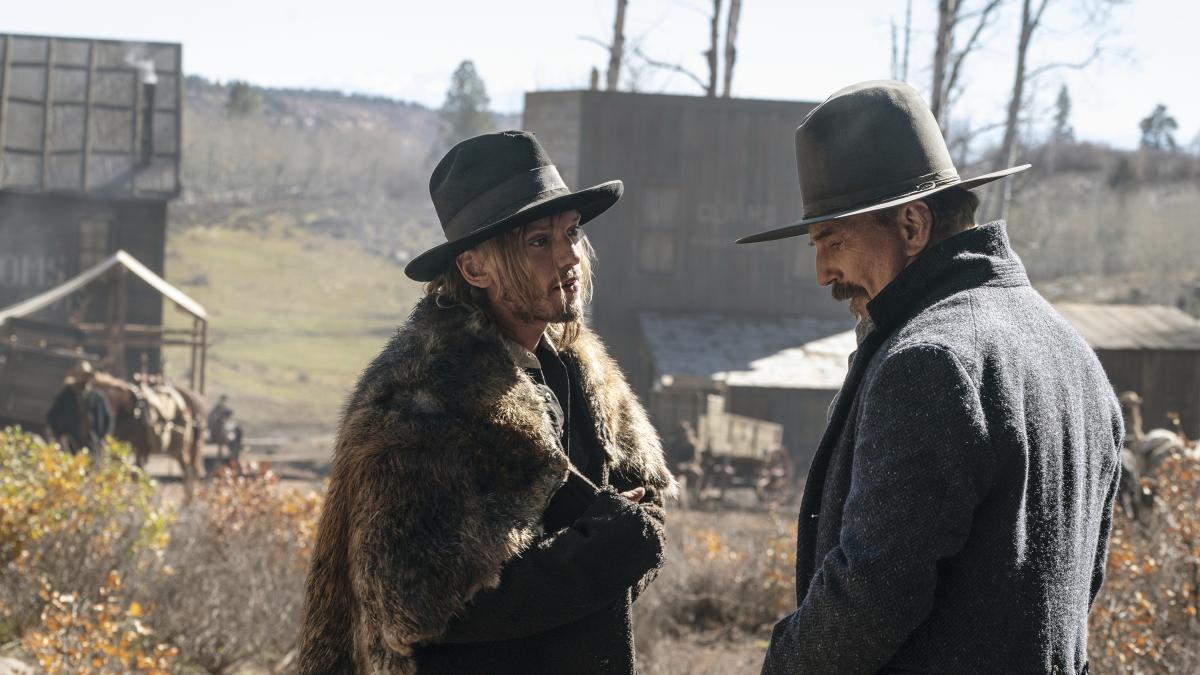LOS ANGELES — For nearly 20 years, Hollywood has seemingly missed no opportunity to sound the alarm about climate change.
According to the criteria of
There have been cry-anguish type documentaries, most notably “An Inconvenient Truth.” Superheroes have been concerned, with Batman lamenting humanity’s treatment of the planet in “Justice League.”
So it was surprising when the climate-themed film “Tornados” by Universal Pictures, with no mention of climate change. If there was ever a perfect vehicle to convey Hollywood’s progressive message about climate change, climate change —a big-budget movie about people caught in worsening storm patterns—wasn’t this one?
Apparently not. Movies shouldn’t try to “preach a message,” said Lee Isaac Chung, who directed “Tornados,” in an interview ahead of its release.
Spotting trends in cinema is a dangerous business. Sometimes a movie is just a movie. But “Tornados” is emblematic of a clear shift in Hollywood: after a period of openly using movies to showcase progressive values, sometimes with box office success, (“Barbie”) and often not (“The Marvels”, “The Color Purple”)the studios appear to be heeding a message that many ticket buyers — particularly in the middle US — have long been sending: We just want to entertain ourselves, without it being a task.
Put bluntly, it amounts to an attempt by Hollywood to pander to conservative audiences.
Disney, which owns seven studios, including Pixar, Marvel and Lucasfilm, has put its creative ranks on notice.First of all we have to entertain – it’s not about messages“,” Disney Chief Executive Robert A. Iger said at a conference last year.
His comments were a reversal of his remarks at Disney’s shareholder meeting in 2017, when he spoke proudly about weaving more overt sociopolitical messages into Disney films. “We can take those values, which we think are socially important, and actually change people’s behavior,” Iger said at the time.
For 20 years, Participant Media was Hollywood’s leading producer of conscientious films. “An Inconvenient Truth” was one of his first hits. But the company closed in April. Participant relied on studios and streaming services to distribute its documentaries and dramas, and those partners have cut back on “niche” content in favor of more populist offerings.
Paramount describes its approach as “absolutely entertaining, all-audience movies.” Among them is “Gladiator II,” due out later this year. “A lot of moviegoers don’t want agendas or Hollywood telling them what they should think,” said Chris Aronson, Paramount’s president of domestic distribution.
Universal’s approach to “Tornadoes” involved positioning the film as escapist fun. Universal didn’t want a movie that served as a rebuke about climate change, which would likely repel conservative moviegoers. “We couldn’t afford to overlook any audience,” said Michael Moses, Universal’s chief marketing officer.
“Tornados”, which cost $155 million to make grossed $82 million at the box office during its first three days in North American theaters, about 65 percent more than analysts had expected, with conservative states providing most of it.
“This movie is a huge hit for us,” said Mike Barstow, executive vice president of Main Street Theatres, which operates 50 screens in Nebraska, Ohio, Wisconsin, Illinois and Iowa. “It’s a relatable story — our communities deal with tornadoes all the time — but it’s also funny and doesn’t feel patronizing to rural values.”
Some moviegoers and theater owners in the vast heartland of the U.S. have rejected films they consider too progressive.
“WARNING,” read a sign taped to the door of an Oklahoma movie theater in 2022. “The management of this theater discovered, after obtaining ‘Lightyear,’ that there is a same-sex kiss scene in the first 30 minutes of the Pixar film. We will make every effort to expedite that scene.”
Disney’s shift in narrative came after a long period in which the company was under attack from conservatives.
Most studios are part of larger conglomerates that are under intense pressure to boost revenue as traditional cable channels wither and streaming services struggle with high programming costs.
Hollywood has not recovered from the pandemica. The North American box office total for the year to date is $4.3 billion, down about 35 percent from the same period in 2019, Comscore reports.
As studios try to get back on their feet, America’s heartland represents an opportunity. Moviegoers in conservative states were the quickest to return to theaters after the pandemic, while those in coastal cities were the slowest.
As Sarah Unger, co-founder of Cultique, a firm that advises companies on cultural norms, wrote in an industry newsletter: “Hollywood lacks a mass audience that is in plain view.”


